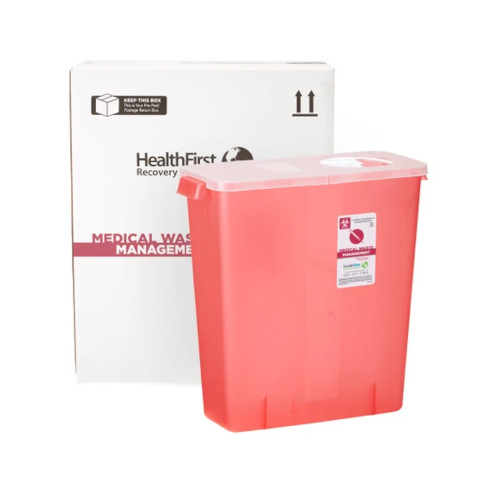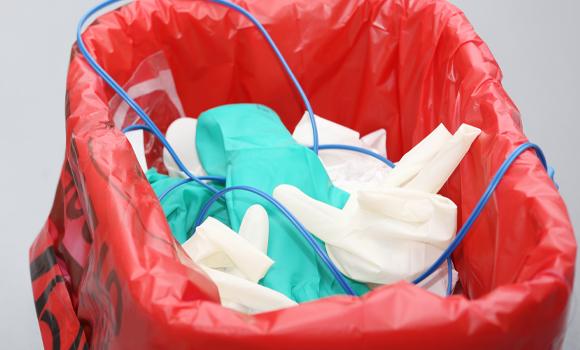Healthcare Health Heroes: The Unsung Role of Medical Waste Removal Service
Healthcare Health Heroes: The Unsung Role of Medical Waste Removal Service
Blog Article
Discovering Various Garbage Disposal Options for a Cleaner Atmosphere
In the pursuit of a cleaner environment, the monitoring of garbage disposal has become a vital prime focus for sustainable growth. With a plethora of waste disposal choices offered, ranging from traditional garbage dump approaches to innovative waste-to-energy innovations, the choice of exactly how we manage our waste has far-ranging effects for our planet's health. By analyzing the numerous techniques and methods utilized in reusing, composting, incineration, garbage dump management, and waste-to-energy procedures, a much deeper understanding of their impacts and performance can be obtained. The pursuit for ideal garbage disposal techniques that prioritize ecological conservation while satisfying the demands of an expanding population remains a pressing problem in today's globe.
Recycling Methods
Implementing effective reusing approaches is vital in lessening waste and promoting sustainability in our setting. Recycling includes the process of converting waste materials into recyclable things to stop unneeded disposal.
An additional essential recycling approach is composting, which entails breaking down natural waste like food scraps and backyard trimmings into nutrient-rich soil. This process not just diverts natural waste from garbage dumps however likewise creates an important source for horticulture and agriculture. Additionally, upcycling is an innovative recycling approach that entails changing old or disposed of products right into products of better or value. By integrating these numerous reusing methods right into our waste management practices, we can substantially lower our environmental footprint and relocate towards a more lasting future.

Composting Methods
Effective waste management practices, such as recycling methods, pave the means for a cleaner setting, and now, changing the focus to 'Composting Techniques', we explore lasting ways to decompose natural waste for ecological benefit. medical waste removal near me.
Composting is a natural procedure that changes organic waste, like food scraps and lawn trimmings, into a nutrient-rich dirt modification. The secret to effective composting hinges on developing the appropriate equilibrium of environment-friendly products, such as vegetables and fruit scraps, and brownish materials, like dried twigs and fallen leaves. These materials decay with the help of microorganisms, damaging down the waste into valuable compost.
Standard yard composting involves layering organic products in a bin or pile and on a regular basis turning the mix to freshen it. By using composting methods, we can minimize the amount of waste sent out to landfills while creating a useful product for enhancing dirt and sustaining plant development.
Incineration Disadvantages and pros
Incineration, as a waste disposal technique, presents both advantages and disadvantages that warrant cautious factor to consider in the world of lasting waste management techniques. On the positive side, incineration can significantly reduce the quantity of waste, decreasing the requirement for land fill area and potentially lowering greenhouse gas discharges.
Nonetheless, there are noteworthy drawbacks to incineration. One significant issue is the possible release of hazardous pollutants into the air, such as dioxins, heavy metals, and particle matter, which can have damaging effects on human health and wellness and the environment. Furthermore, the high initial investment and operational costs of incineration facilities pose economic challenges, making it a much less economical alternative compared to other waste monitoring strategies. Cautious monitoring and policy are vital to reduce these unfavorable influences and optimize the advantages of incineration as part of a comprehensive waste administration technique.
Garbage Dump Management Approaches
Garbage dumps play a critical role in waste monitoring and environmental preservation by providing a control system for the disposal of solid waste products. By compacting the waste, the volume is decreased, allowing for more waste to be fit over time.
Moreover, the application of day-to-day cover methods is essential in lessening smells, avoiding trash, and minimizing the attraction of parasites. Treatment the disposed waste at the end of each day aids to have smells and stop potential environmental contamination. Additionally, the monitoring of landfill gas emissions and leachate degrees is important in making sure that ecological standards are satisfied and that any type of prospective risks to surrounding communities are minimized.

Waste-to-Energy Technologies
One of the innovative strategies to lose monitoring entails utilizing Waste-to-Energy modern technologies to transform solid waste right into usable power resources. Waste-to-Energy (WtE) innovations encompass a series of processes that intend to remove energy from waste products via thermal, chemical, or biological means. This conversion process not only decreases the volume of waste that winds up in land fills yet likewise generates useful power resources such as electrical energy, warmth, or biofuels.
There are several approaches of Waste-to-Energy conversion, consisting of gasification, pyrolysis, and incineration. Incineration entails melting waste at heats to create heat and electrical energy. Gasification converts waste into a syngas, which can be utilized for power generation or chemical production. Pyrolysis breaks down organic products utilizing high temperatures in the absence of oxygen, creating bio-oil, char, and gas.
Executing Waste-to-Energy technologies can assist mitigate ecological issues connected with standard garbage disposal methods while at the same time supplying a sustainable power source. Cautious consideration needs to be provided to discharges control and making sure the sustainability of feedstock materials for these technologies to be absolutely valuable for a cleaner setting.

Final Thought
In conclusion, exploring various garbage disposal choices such as recycling, composting, incineration, garbage dump administration, and waste-to-energy technologies is vital for promoting a cleaner setting - click here. Each technique has its own advantages and challenges, however by making use of a combination of these strategies, we can work in the direction of reducing the amount of waste that finishes up in landfills and eventually add to an extra lasting future for generations to come
With a wide range of waste disposal choices web readily available, varying from standard landfill methods to innovative waste-to-energy innovations, the choice of just how we handle our waste has far-ranging implications for our planet's well-being. medical waste removal near me.Incineration, as a waste disposal technique, provides both advantages and drawbacks that merit cautious consideration in the world of sustainable waste monitoring methods.Land fills play a critical duty in waste management and environmental conservation by providing a control system for the disposal of solid waste products. By compacting the waste, the quantity is decreased, allowing for even more waste to be fit over time
One of the innovative methods to throw away management involves taking advantage of Waste-to-Energy modern technologies to convert strong waste right into useful energy resources.
Report this page